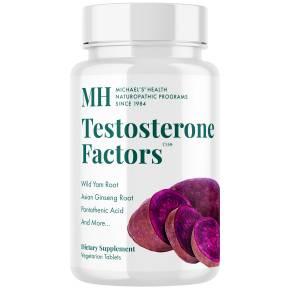They play a crucial role in brain function. They reduce inflammation. They may reduce the risk of heart disease, cancer, and arthritis. They can help lower blood pressure, cholesterol, and the triglycerides associated with diabetes; improve memory and mood; protect against Alzheimer’s and other forms of dementia; and prevent age-related macular degeneration.
The list of health benefits associated with omega-3 fatty acids goes on and on, so it’s no wonder the US market for omega-3 supplements has boomed in recent years, with sales an estimated $1 billion in 2009.
But what about the health of the planet? Many of us get our omega 3s from fish oil capsules. With rising concerns about overfishing and depleting the supply of small fish that are critical to marine ecosystems, how can consumers be sure they’re purchasing omega-3 supplements that are safe and healthful for their families and do no harm to the planet?
Fish story
You’ve likely never heard of menhaden, but it plays a critical role in the aquatic food chain. A small filter feeder fish, menhaden help keep waters off the Atlantic and Gulf coasts clean by eating omega-3 rich algae, thereby preventing algal blooms that drain the water of oxygen. Scientists are concerned the species is being overfished by some fish oil producers, and 13 Atlantic states have prohibited the company that catches 90 percent of the country’s menhaden from entering their waters.
The Environmental Defense Fund notes that evaluating the ecological impact of the fish oil industry is not simple, because several species of fish are used to make fish oil. Most are small species, including mackerel, anchovies, and sardines (and the more troublesome menhaden). On the plus side, such small fish reproduce quickly—and the gear used to catch them does relatively little harm to other marine life and the undersea environment.
The good news is that when consumers select supplements from well-managed fisheries, as the Environmental Defense Fund states on its website, “fish oil supplements are an acceptable choice for ecologically concerned consumers.”
Crustacean option
A crustacean species that resembles shrimp, Antarctic krill has been increasingly harvested for use in supplements. Krill oil is a good choice for human health, as its omega-3 fatty acids are easily absorbed by the human body. In terms of the environmental impact of krill use, the verdict is mixed.
The krill population is currently plentiful, and the harvest is safely within the limits set by the Convention on the Conservation of Antarctic Marine Living Resources. But environmentalists and scientists are concerned that the creature’s popularity may increase the risk of overfishing in the future. At the same time, global warming is leading to the depletion of krill, along with the marine life that eats it, including two types of penguin. So krill is a good choice now, but one to keep an eye on in the future.
Lower on the food chain
While fish oil is frequently cited as providing the most complete health benefits as compared to nonmarine plant forms of omega 3s, some newer marine products bypass the fish entirely by offering omega 3s that come directly from the algae that the fish feed on—and that offer brain health benefits. At least one biotech company is farming strains of algae in enormous tanks, and some are creating oilseed-algae hybrids that are replete with a wider variety of fatty acids.
Plant sources
The omega-3 fatty acids EPA (eicosapentaenoic acid) and DHA (docosahexaenoic acid) are found in marine sources. ALA (alpha linolenic acid) from plant sources can be converted in the body into EPA and DHA—though many consider the process much less efficient than directly consuming marine sources of fatty acids. Omega 3 supplements from plants come from flaxseeds, chia, walnuts, pumpkin seeds, and soybeans, among others.
Some omega-3 health benefits have been specifically associated with ALA, including improved vascular tone, heart rate, blood lipid levels, inflammatory responses, and blood pressure, along with reduced hardening of the arteries.
SELECTED SOURCES
“How Safe Are Fish Oil Supplements?” Environmental Defense Fund, www.edf.org
“MSC Standards and Certification Requirements,” Marine Stewardship Council, www.msc.org
“Omega-3 ALA—Overlooked and Misunderstood?” by Stephen Daniells, www.nutraingredients.com, 6/26/08
“Omega-3 Fatty Acids,” University of Maryland Medical Center, www.umm.edu, 5/10/11
“Team Tracks a Food Supply at the End of the World” by Susan Moran, New York Times, 3/12/12
“The Trouble with Fish Oil” by Tim Padgett, Time, 1/25/10



